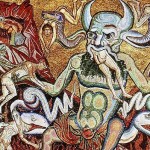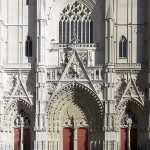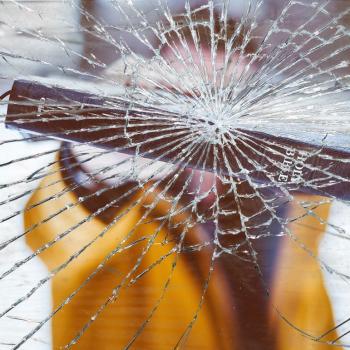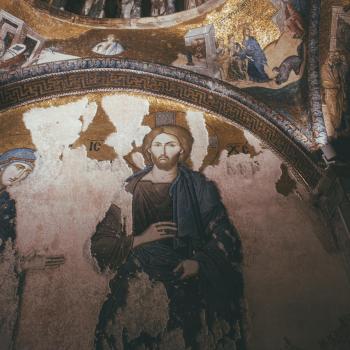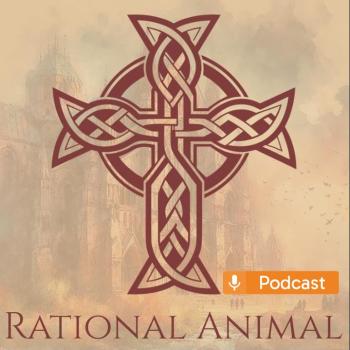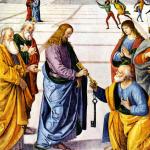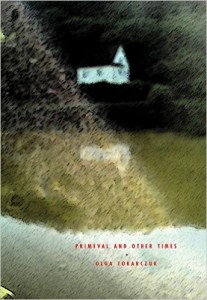 Primeval and Other Times, Olga Tokarczuk
Primeval and Other Times, Olga TokarczukTokarczuk’s third novel, PRIMEVAL AND OTHER TIMES was awarded the Polityka Passport Prize in 1996 and the Koscielski Prize in 1997, which established the author as a leading voice in Polish letters. It is set in the mythical village of Primeval in the heart of Poland, which is populated by eccentric, archetypal characters. The village, a microcosm of the world, is guarded by four archangels, from whose perspective the novel chronicles the lives of Primeval’s inhabitants over the course of the feral 20th century. In prose that is forceful and direct, the narrative follows Poland’s tortured political history from 1914 to the present and the episodic violence that is visited on ordinary village life. Yet this is also a novel of universal dimension that does not dwell on the parochial. A stylized fable as well as epic allegory about the inexorable grind of time, the clash between modernity (the masculine) and nature (the feminine), it has been hailed across Europe as a contemporary classic.
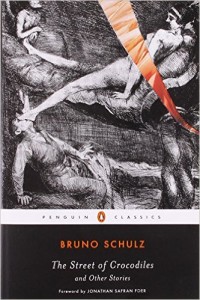 The Street of Crocodiles, Bruno Schulz
The Street of Crocodiles, Bruno SchulzThe Street of Crocodiles in the Polish city of Drogobych is a street of memories and dreams where recollections of Bruno Schulz’s uncommon boyhood and of the eerie side of his merchant family’s life are evoked in a startling blend of the real and the fantastic. Most memorable – and most chilling – is the portrait of the author’s father, a maddened shopkeeper who imports rare birds’ eggs to hatch in his attic, who believes tailors’ dummies should be treated like people, and whose obsessive fear of cockroaches causes him to resemble one. Bruno Schulz, a Polish Jew killed by the Nazis in 1942, is considered by many to have been the leading Polish writer between the two world wars.
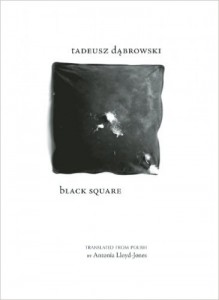 Black Square, Tadeusz Dabrowski
Black Square, Tadeusz DabrowskiWhen in 2006 Tadeusz Różewicz won the Polish Culture Foundation’s Golden Sceptre lifetime achievement award, he presented the Little Sceptre-awarded by the major winner to his favorite younger artist-to Tadeusz Dąbrowski, with the words: “One day he’ll swap his little sceptre for a big one.” Restlessly inventive, sharp-witted, and intent on raising mischief, the poems in BLACK SQUARE are so much fun to read, it’s almost easy to overlook how deeply serious they are—and how dark. Dąbrowski is part life of the party, part heavy-hearted metaphysician, and he plays his two sides off each other like an expert comedy team with a knack for aphorism and philosophical speculation. “Nothing would be bearable if I weren’t / endlessly somebody else,” he writes, embracing the ever-changing nature of identity—and leaving us thankful he remained himself long enough to complete this brilliant, unforgettable book.
I apologize for leaving out important books such as Zagajewski’s Another Beauty, Gombrowicz’s Ferdydurke, Rozewicz’s Sobbing Superpower, Maslowska’s Snow White and Russian Red, Mysliwski’s Stone Upon Stone, Szymborska’s Collected and Last Poems, Libera’s Madame, and Huelle’s The Last Supper due to artificial constraints of the TOP10 genre. But you should check them out anyway.
For more books suggestions click on World Book Day: TOP10 Meta Book List
https://www.youtube.com/watch?v=P2HzgisQD7Q
If you’re want to know more about the spiritual state of Poland see: Demons of Liberal Democracy Haunt Poland After the Hell of Communism
Consider making a donation to this blog through the donation button on the upper right side of its homepage. Our family just moved to a new place, we’re experiencing car problems, and things will be financially tight until the end of this year. Your donations help keep us, and this blog, going.
Stay in touch! Like Cosmos the in Lost on Facebook:

